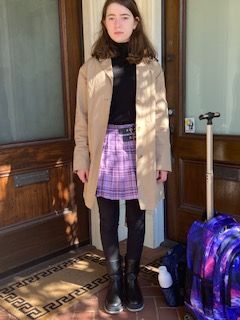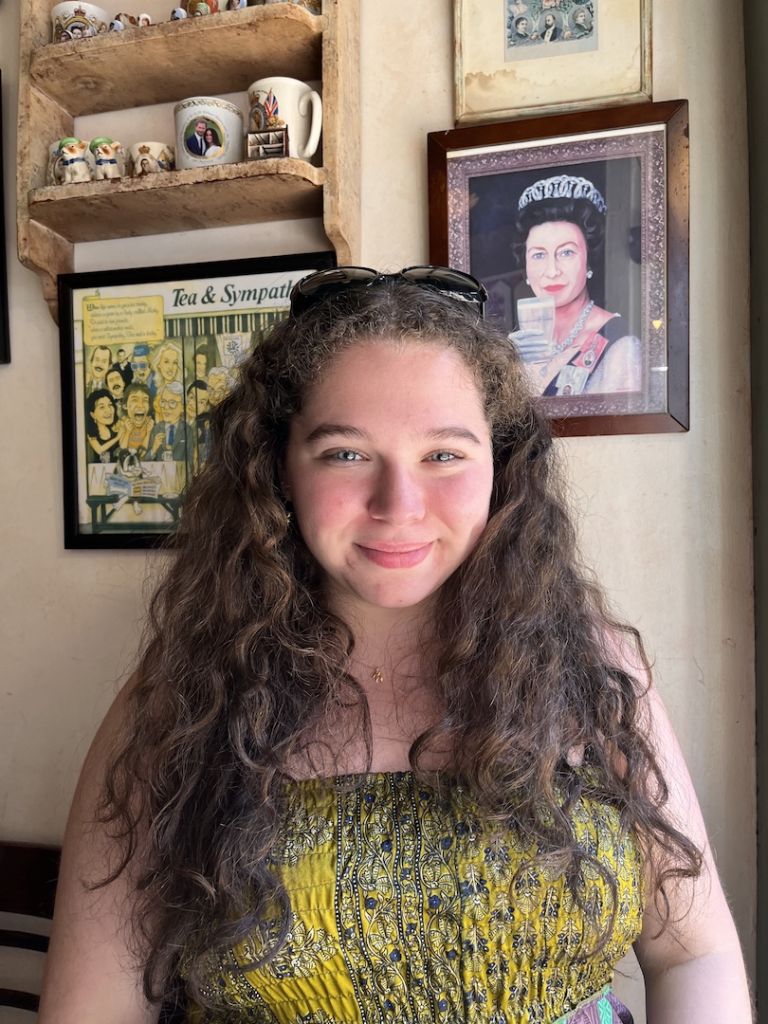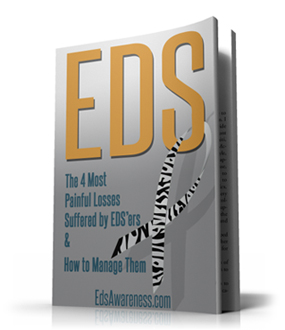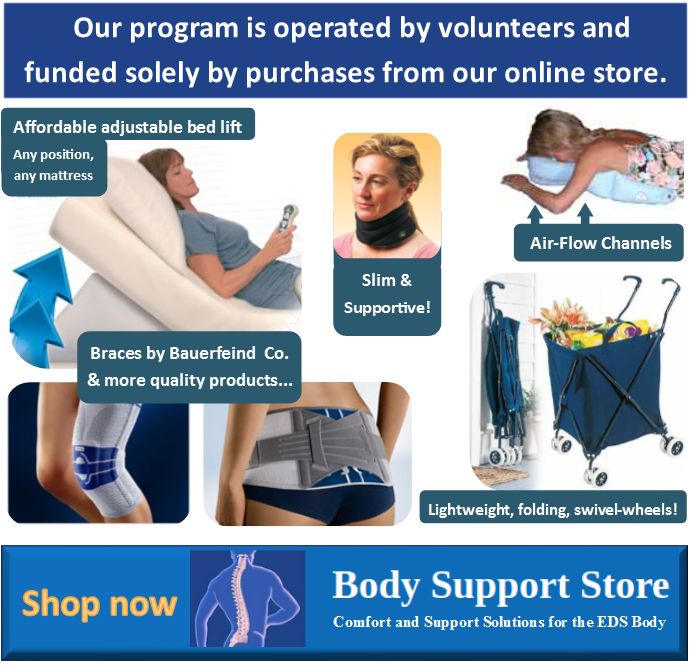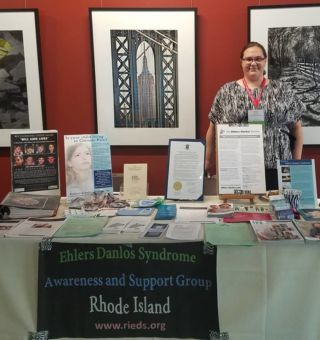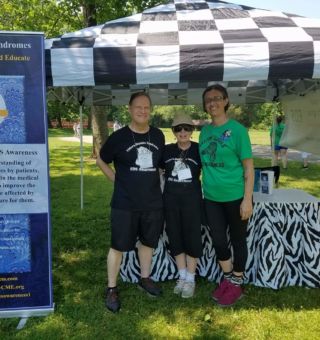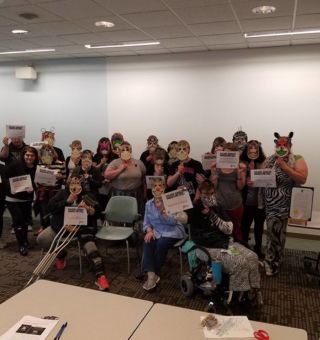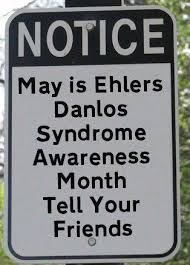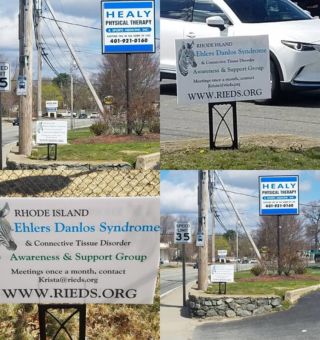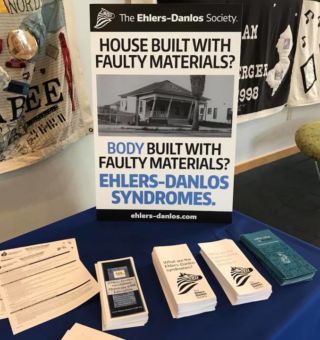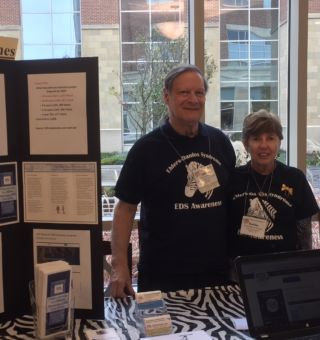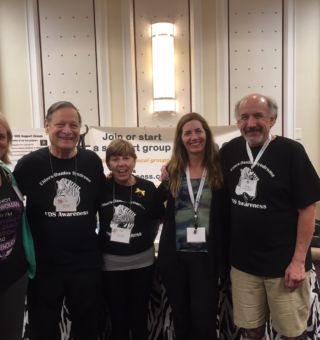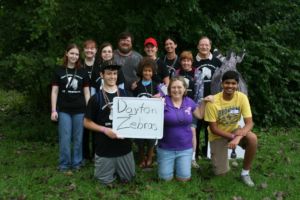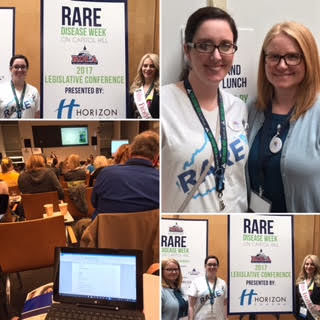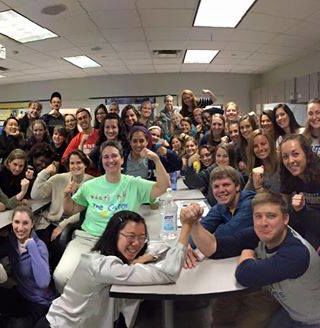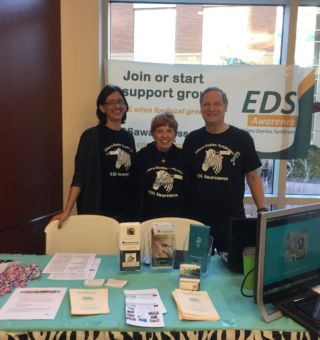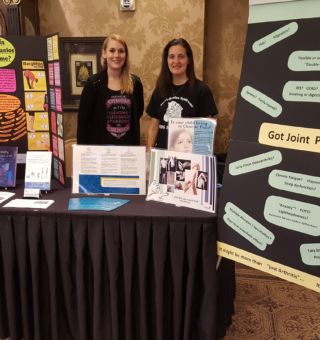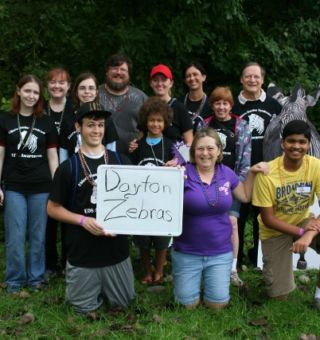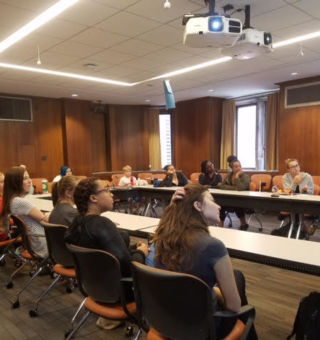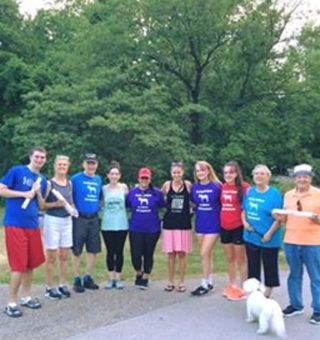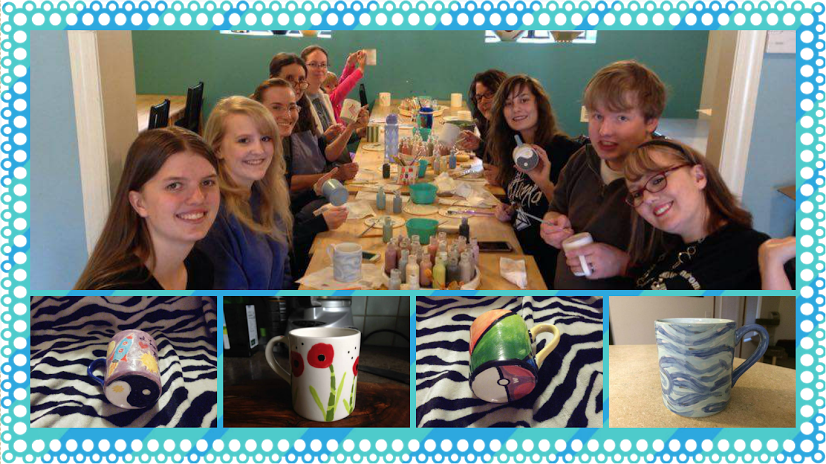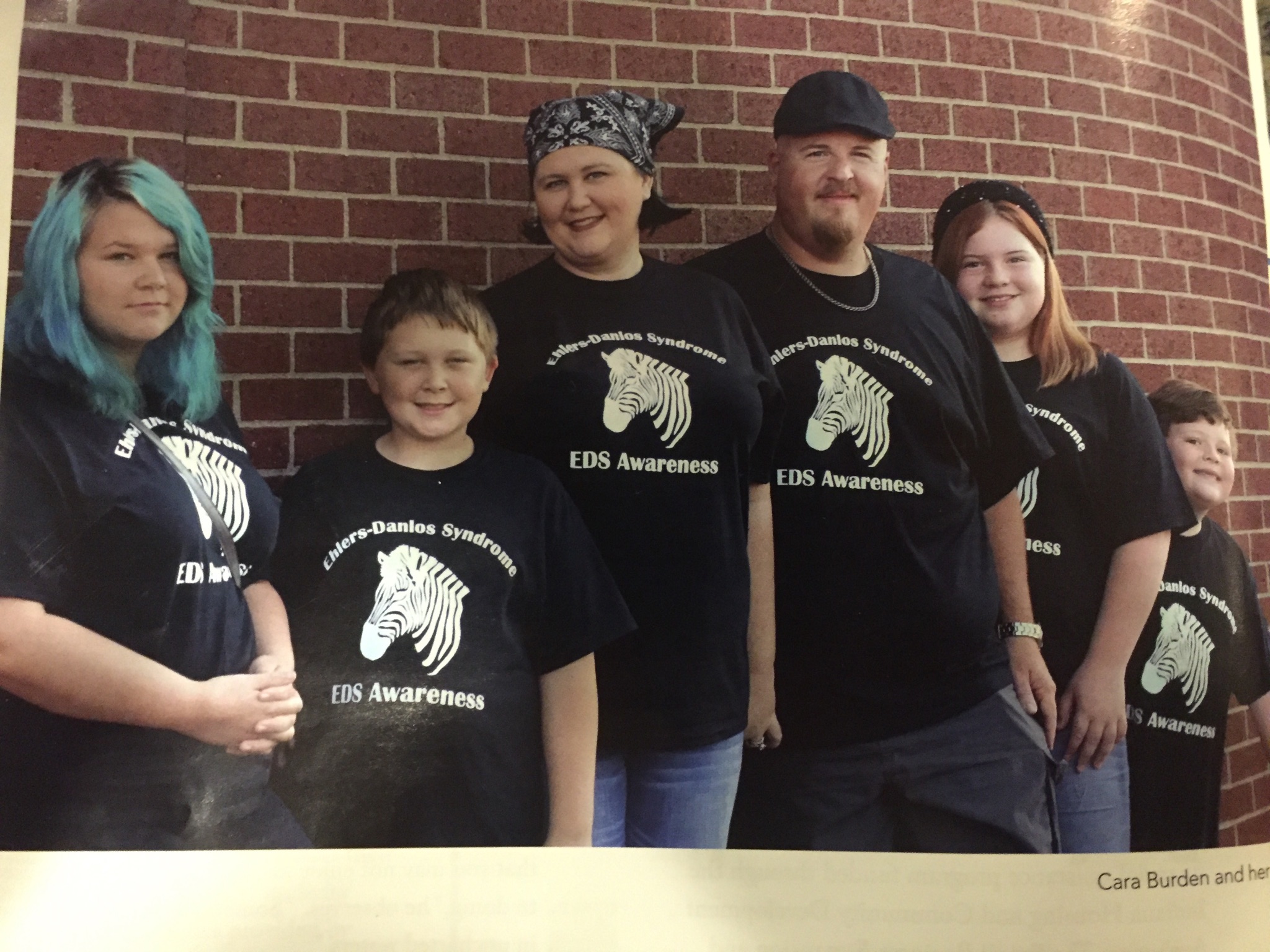Two Students Share How They Navigate School With EDS
In last month’s article, “4 Tips on How To Navigate School as a Student with Ehlers-Danlos Syndrome,” we took a very subjective look at the issue of attending high school while living with Ehlers-Danlos syndrome. This month, we wanted to hear from two teens navigating the school system with EDS, Amicie Koslow and Lily Hirschson. Amicie and Lily spoke about their struggles trying to balance it all and shared what they have learned with their peers who might be dealing with similar issues. Writer Crystal Sullivan first spoke with Amicie Koslow, a junior at the Lycée Français de San Francisco.
Crystal Sullivan: I spoke with your mom earlier, and she said that your health really fell apart this past summer, right before the start of your junior year of high school. It was at this point that you realized that continuing to go to school consistently, or at all, might not be possible.
Amicie Koslow: Actually, it was a process. I seem to have injured my back during the summer, and the pain wasn’t going away. It didn’t seem like a big deal at the time, but it turned into a chronic pain condition. As school approached, I was increasingly nervous because the pain wasn’t improving, and I had no idea what I was going to do. I walked into school on the first day, and I was thinking of it as a test day to see how it went, and it went pretty badly. I wasn’t really able to stay the entire day because I was in so much pain. I tried two more test days to see if it got any better, and it didn’t, which is when I brought it up to my mom. We knew we had to make a plan to decrease my time at school but somehow not fall behind. I really wanted to stay with my class and friends and not be forced to graduate a year late.
Sullivan: How did you feel when you realized that you had to rethink how you were going about high school?
Koslow: It was awful because I knew that junior year was already stressful enough, and so just the idea that I needed to figure out a plan to implement, on top of everything else, was tough. We had no idea where to start, and the school didn’t know how to go about it either, so we were stuck and left to figure it out ourselves.
Sullivan: And how did you find solutions since resources weren’t readily available?
Koslow: At first, we considered switching to some online courses, but it wouldn’t have worked out with my complicated school schedule. For example, we thought of replacing math, but it wouldn’t have worked out as that class rotates in and out of my schedule on a bi-weekly basis, meaning if I took it out of my schedule, I’d still have to be in school every other week for a different class. I wouldn’t have gotten the extra time at home to rest that I needed. Because of the way my school schedule works, online classes just make sense and would have made things even more complicated. And so, we needed to find other solutions so I could attend school in person. I switched to a rolling backpack which I was hesitant about at first because, unfortunately, my school’s hallways are quite narrow. Not having to carry a heavy backpack is necessary for my back, but I feel like I’m doing parkour around people, over people’s feet. It’s been quite stressful walking around the hallways lately. I think I’ve rolled over two people. (Laughs). Eventually, we came up with the idea of doing part-time days at school. The school didn’t provide us with an actual plan, but it was agreed I could skip classes when I was in pain. Essentially I do not have a set schedule of when I don’t show up for a particular class, but rather, it’s more like if I wake up in pain on a Wednesday, I might not go to a morning class or classes.
It’s a volatile plan in that I try to go to as many classes as I can, especially when I have a test or group project, since missing classes means I will have more catch-up work to do and more on my plate. I’ve recently ended up being in class a lot more than my body can handle because there have been more tests and projects assigned.
Sullivan: So, you feel like you’re really pushing yourself to overdo it?
Koslow: Since I’m missing class, I, of course, have to catch up on the work. For example, I might have the morning off, but I’ll have to spend that morning catching up on the class from the previous day, and then maybe the same night, I’ll be catching up on the class from that day. So, I’m constantly falling just a little bit behind, which is stressful because, on top of it all, I might have new homework and a test the next day.
Sullivan: Have you thought about any other options that might work or help supplement this current plan for you? Or have you found resources within your school at all for someone to help navigate this with you?
Koslow: The school doesn’t seem to have a disability policy, and the resources took some time to figure out. I think the biggest accommodation I’ve gotten for physical problems is that I’m allowed to use the school elevator. But the issue with that is I might be late for every class because the elevator is on one side of the school, away from my classrooms and it’s extremely slow. I don’t want the extra stress of being late for class, especially on days when tests are given. The school has also provided me with a rolling, office chair because the regular student chairs are really hard and painful for me to sit on. Unfortunately, the chair isn’t super comfortable.
Sullivan: Ideally, if you could create the perfect world within your world of having EDS, as far as school goes, what would you include in your plan?
Koslow: I’d wish to have had a more structured plan in the first place. We had to figure out almost everything ourselves, and that isn’t something we knew how to do. It should never be the student’s or their family’s job to come up with a plan. Schools should have plans for disabled students because disabled students exist. It would have made my entire experience so much less stressful if there had been something in place already.
Sullivan: What would you wish that educators would understand about EDS and how it affects school and schoolwork?
Koslow: I wish there was a different set of expectations. Because of my chronic pain, I’m not able to do as many extracurricular activities or study as hard as I want to. I also have ADHD, which causes me to have issues with inattention. And on top of that, I’m in pain, and because of that pain, I’m getting less sleep. All these different factors come in and make it so hard to pay attention which in turn makes studying twice as difficult than it was prior to this whole fiasco. The emphasis on extracurriculars for college is also stressful because I can’t really do much because of my physical condition. I don’t think it’s realistic or healthy to expect the same level of extracurriculars.
Sullivan: Yeah. Have you thought about taking some time off school-wise and giving yourself a break?
Koslow: In the ideal world you were talking about earlier, that is something I wish I could do. But it would cause me so much stress later because I would still have to catch up on a week of missed work, plus any tests. I actually have experience doing something similar because when I was a competitive fencer, I would have to take extended breaks from school to compete all over the country. So, I know firsthand how stressful it is to have to catch up on work and catch up on tests because they all quickly pile up. I can remember when I skipped a week one time, I came back and had to take around eight tests!
Sullivan: Oh, wow. Do you feel hopeful that this arrangement can be tweaked for you so that you are able to have a better balance and are not as stressed; where you’re able to get work done and also have the rest of your life as well?
Koslow: To be blunt, not really. I feel like things have been staying pretty stagnant in terms of progress, both in my pain and what we’re trying to do with the school at the moment. But actually, I have been maintaining a good social life, and that’s part of what’s keeping me going right now. I have great friends who provide me with any schoolwork that I miss when the teachers forget to post it online. I’ve been really grateful for them. I would say that having a social life is a massive part of getting better and healing because having friends and going out is good for mental health. If you’re not socializing and you’re not talking to people, and you’re just inside studying, that will lead you to feel awful. It’s important to talk to others because the last thing you want to do is feel alone through this whole process. And it can feel quite isolating to go through this because your peers, for example, don’t really understand what you’re going through oftentimes, and you might often be singled out.
Sullivan: I am glad to hear that you have good friends that are able to support you! What advice would you offer to other people in your situation that are facing trying to go to high school, trying to hold down a job, maybe trying to have friends, trying to keep up with school, and just feel like they can’t continue to make it to school every day without actually making themselves physically worse or just overloading their body with more than they can handle?
Koslow: First off, sit down with the school at the very beginning to figure things out. I think we waited a little bit too long into the school year to find out what (if anything) was available, which made it much more stressful. So had we come up with a more concrete plan at the beginning, that would have given us more time to come up with a better solution. Once the school year really gets going, the faculty gets busy, and it just becomes much harder.
Sullivan: What about how to handle it personally?
Koslow: It’s tough enough as it is for myself so it’s difficult for me to give advice. I guess even though I said earlier that it’s hard to be hopeful, it’s still essential to have some form of hope and to know that it will eventually get better. And you just have to live in the present, even if it feels awful that one day, it will get a little bit better at some point.
Writer Crystal Sullivan also had the pleasure of speaking with Lily Hirschson, a junior at New Explorations into Science, Technology and Math High School in New York City.
Crystal Sullivan: When did you realize that it wasn’t going to be possible for you to attend high school with just the standard accommodations?
Lily Hirschson: When I saw that I was physically unable to stay awake in class, to actually keep my eyes open. I didn’t want teachers to think less of me or that I didn’t care about school, so I wanted to get my accommodations set in official writing while validating the fact that I’m still a hard-working and thoughtful student, just one who has a chronic illness.
Sullivan: What did that mean for your goals, and how did it hit you emotionally?
Hirschson: To me, it felt like, and still does, that I’d never be able to play softball again. After a shoulder injury in the fall of 2021, I was able to play softball in the 2022 Spring season after working in physical therapy. Unfortunately, I did reinjure that same shoulder that season, which felt really dooming. I had worked so hard and trained so much – both in PT and as a player at practice – that it felt like nothing could work to help me. I’m currently in PT again, and I’ve been feeling really good. Even though I’m not playing softball currently, I’m able to see my strength increase, regardless of the time it takes, which gives me hope.
Sullivan: How did you decide to move forward?
Hirschson: For me, it wasn’t about “deciding” and making a conscious effort to move forward. Instead, my diagnosis became a part of my life, and so I just had to deal and adapt, which I still continue to do. I roll with the punches and handle different issues or obstacles at hand. Just because I have a chronic illness doesn’t mean I’m not a regular kid. I’m still very much a teenager, and I’ve learned that needing to take breaks and occasionally sit out doesn’t make me any less of a person, or teen, than anyone else.
Sullivan: How do you stay flexible with your thinking in that you may have to continue to follow a non-traditional path with your health and constantly adapt?
Hirschson: When I have moments of being overwhelmed and anxious after doctor’s appointments, and I can’t see the bigger picture of my health improving, I think about how much I’ve been able to do. I had this incredible experience this past summer with The Hurricane Island Center for Science and Leadership and Outward Bound School, Maine, and saw that I was capable of so much more than I thought with this illness.
Sullivan: Guitar is something that brings you joy; can you tell us some more about how that affects your mental, emotional, and physical health?
Hirschson: Playing guitar feels secure for me, something that’s always there. I love music and find comfort in it, so being able to pick up the guitar and play, regardless of what I’m emotionally feeling, calms me and makes me feel serene, and allows me to recenter myself.
Sullivan: What advice would you offer to teens in a similar situation?
Hirschson: The biggest thing I want to stress is that having an illness doesn’t change what makes you “you.” While, of course, things change and you may have to adapt to different ways of doing certain things, it becomes natural after a while, not something that’s being added on in life. I worked hard, and still am, in cognitive-behavioral therapy to help frame my thinking and see that I’m still me. I joke a lot about having EDS, which at first, I used as a way of covering up that I was not emotionally processing it when I got diagnosed, but now it’s a way I take pride in it. It shows that I’m still me, just with some creaky joints. I’m able to look and see what I’ve been able to accomplish, and I’m proud of myself. Adapting to whatever may arise becomes second nature, and although it may take time, it’s true.
Having a support system is really important as well. I wouldn’t be in a place to joke about it without the love of my parents and closest friends. Although things can feel shitty – physically and emotionally – so much of the time, you just have to find things you enjoy doing by yourself. You may be too exhausted or in too much pain to go out with friends, but that just allows you more time to yourself. I’ve come to really love having “me” time and relaxing at home and finding new things I enjoy, and indulging in old hobbies, too. Some days I stay at home and put on some good music, play guitar, read, watch TV, or crochet, and I like that those things have become part of me. I now value time to myself, and when I can, I like to take myself on dates to my favorite thrift shop or a new cafe I haven’t been to before. I’m still me with the same interests and passions, and although it may take some experimenting, I’m able to experience new and old ways of doing things I love.
Cover Image: Pixabay
You might also want to read:
Parental Preparation for Securing Accommodations at K-12 School for Children with the Ehlers-Danlos Syndromes
Crystal Sullivan
April 2023


